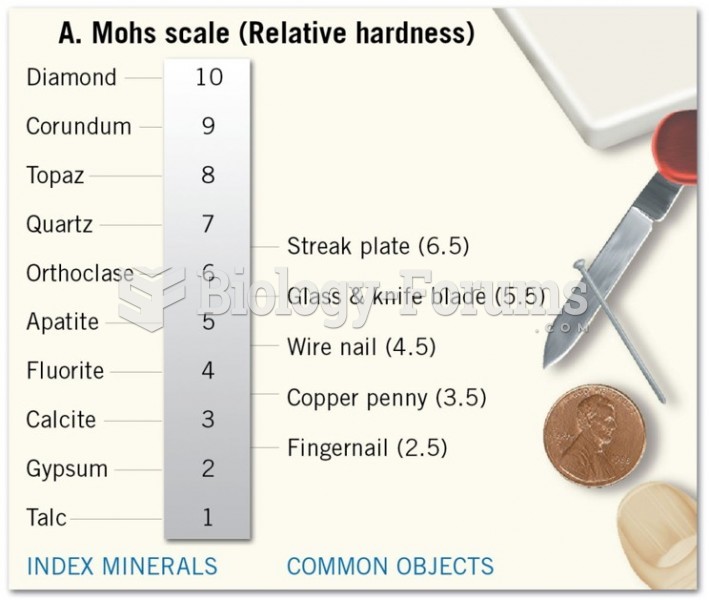This topic contains a solution. Click here to go to the answer
|
|
|
Did you know?
In the ancient and medieval periods, dysentery killed about ? of all babies before they reach 12 months of age. The disease was transferred through contaminated drinking water, because there was no way to adequately dispose of sewage, which contaminated the water.
Did you know?
Certain rare plants containing cyanide include apricot pits and a type of potato called cassava. Fortunately, only chronic or massive ingestion of any of these plants can lead to serious poisoning.
Did you know?
Elderly adults are living longer, and causes of death are shifting. At the same time, autopsy rates are at or near their lowest in history.
Did you know?
The first oral chemotherapy drug for colon cancer was approved by FDA in 2001.
Did you know?
On average, the stomach produces 2 L of hydrochloric acid per day.
 Most lifts are equipped with short pad extensions that are often necessary to use to allow the pad ...
Most lifts are equipped with short pad extensions that are often necessary to use to allow the pad ...
 Facing the table, place one hand on the thigh and the other on the lower leg. Gently rock the leg ...
Facing the table, place one hand on the thigh and the other on the lower leg. Gently rock the leg ...




